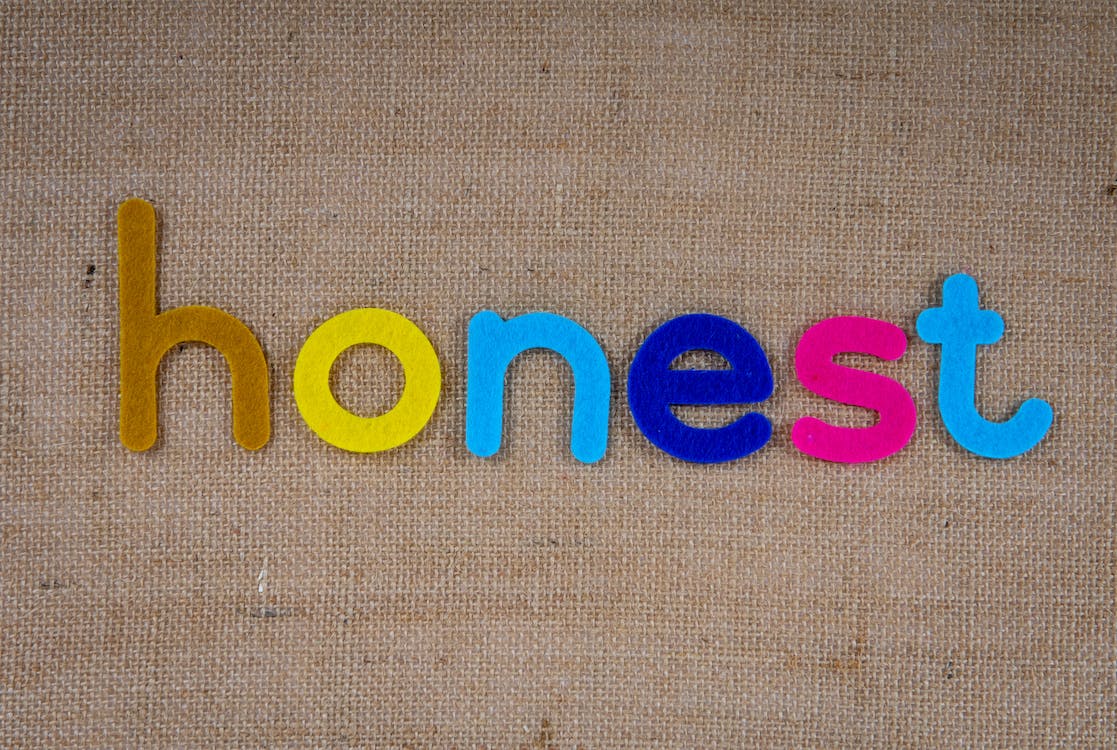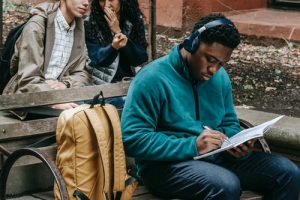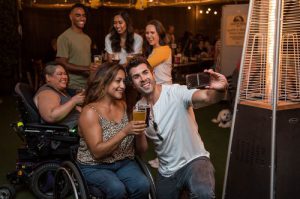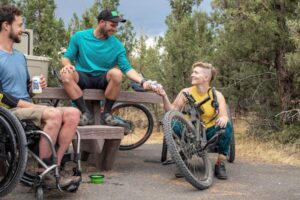
It’s time to be honest about ableism!
We’re all getting familiar with racism or sexism; prejudice, discrimination or stereotyping against people based on their membership of a particular group. Over the passed few months incredibly important issues have been brought to our attention by the Black Lives Matter movement. Vital conversations about violence by men against women have happened as a result of Sarah Everard’s death.
Everyday people are experiencing abuse, prejudice and discrimination because they have visible or invisible disabilities. How many people would know what ableism is and would be able to call it out if they saw it?
This blog is intended to enable people to think about how they think and act, not induce guilt or shame. I hope to raise awareness with compassion not stifle conversation or tell people what they can or cannot do. Please read this with an open mind.
Ableism includes:
- Overt expressions of hate
- Denial of access (to anything including buildings or media)
- Rejection e.g. of an application (for a job or housing) through to more subtle things such as,
- The language we use suggesting disability is “less than” or inherently bad.

Ableism comes in 3 forms of microaggressions:
- Microassaults—things that are said/done that cause overt stigma and/or discrimination (even if the person doesn’t mean to be offensive). For example “falling on deaf ears” associates deafness with wilful ignorance. The person using this phrase may mean no harm but it’s the undertone that can have far-reaching harm about the deaf community (for example).
- Microinsults—subtly communicated rudeness or insensitivity with underlying assumptions. E.g. Commenting that “the most qualified person should get the job” is unnecessary. While it doesn’t directly say “the disabled person shouldn’t get the job”, it has undertones of ” if the disabled person gets the job, it’s because they’re disabled”.
- Microinvalidations—dismisses the experience of the marginalised group. For example, “I don’t even see your disability” (this is similar to “I don’t see colour”). While the person may be trying to be complimentary, it could be dismissing a large part of the person’s identity.
Ableism occurs because of the assumptions people make about disabilities or disabled people. This can be a completely unconscious bias. For example, when you picture a disabled person, do you automatically assume they’re in a wheelchair? Do you feel sorry for disabled people? This makes the assumption they’re suffering and need your pity. There are more overt assumptions such as laziness, daytime TV watchers, scrounging off the state, using up precious NHS resources (“why should I pay my national insurance when I hardly use the NHS?”). If you have these overt or unconscious biases you’re going to assign stigmatising labels and use discriminatory language to describe disabled people. E.g. when you meet someone from the disabled community you might keep the conversation on TV programmes rather than what you studied at uni… You might ask “can you have children?” rather than saying “tell me about yourself”.
Society’s assumption that people have to look sick “enough” to be worthy of our help and support is what leads disabled people to feel guilt and shame when they have an invisible illness.
Within the eating disorder community, for example, it’s really hard for people believe they are sick enough to receive help. The criteria to enter services involves calculating the patient’s BMI despite the fact that you might have an incredibly disordered relationship with food irrespective of BMI. Once you do receive help, weight restoration is a double edged sword—as soon as you’re physically better, services can be taken away. The mental stuff takes far longer to catch up—then you fear being called malingering so many people will pretend they’re better. Believing you don’t deserve help can be due to internalised ableism. Time after time, I refused help, believing I had to look sick to get help.

Have you found yourself over the passed year wondering how important that covid-19 restrictions are? Perhaps we could just get herd immunity by letting the virus spread through the population? People with underlying health conditions wouldn’t survive such action, they’ve taken drastic action, this last year, to stay alive. Not considering all with various health conditions and disabilities with equality is ableism. Saying that people who can’t wear a mask should stay inside is ableist—it’s up to us as an intelligent higher order species to work out how we can pull together as a community to protect our most vulnerable and ensure they can continue to function in society.
Have you ever tried to reassure someone that they don’t look disabled or they’re good at blending in? Perhaps if someone is wearing a brace or uses a walking aid, you might say “don’t worry, no one will notice”. Why would this matter if society didn’t have a problem with disability, why would this even cross your mind?! Disabled people shouldn’t have to think they need to blend in. Autistic masking exists because autistic people feel pressure to blend in but this has a massive detrimental effect on mental and physical health.
There’s a fine line (I’m not saying it’s easy) where saying “I don’t see your (self harm) scars” on one hand can mean “…because I love you just the way you are, history and all” or on the other hand can mean “…because I don’t want to hear about your history and it’s better if I ignore your scars, in fact, you should probably cover them up”.
Ableism is nuanced and I’m not coming to you with a right and wrong tool kit, I’m suggesting we talk about things without judgment.
Suggesting that someone’s “too young” to be disabled, “too pretty” to be disabled or reassuring them that “at least they have…” (money/looks/more time) is demeaning because it suggests these things are in some way compensation for the disability. For example, many disabled people work part time, telling them they’re “lucky” without gathering the full picture , is ableist. It’s a sad fact that many disabled individuals want to work or do more work than they currently do but without reasonable adjustments it’s simply not possible. Institutional ableism is keeping disabled people in poverty.

Sometimes the access issues are obvious, sometimes they’re less overt. Steps outside a building or a ramp that’s too steep—obviously someone in a wheelchair cannot get into the building. But what if a PowerPoint presentation has too many words on a slide, font that’s too small, use of pictures alongside words, certain colour combinations or use of capital letters to emphasis your points? Are you aware of the groups you’re excluding from being able to access the presentation? People with dyslexia, autistic people, people with monocular vision or various levels of sight loss.
Anyone can become part of the disabled community at any point, gradually or overnight. Many people have disabilities they’re not even aware of. Some people choose not to be part of the disabled community, perhaps due to internalised ableism… “I’m not one of them” is an incredibly powerful internal dialogue.
I’ve been thinking about writing/publishing this blog for far too long. I’ve wondered if I’m qualified? Imposter syndrome—”feeling as though you don’t belong, will be found out because you’re not good enough”, is incredibly common in the disability community. This YouTube series explains internalised ableism well. It’s human nature to easily filter in the ableist comments, such as “why do you go about that stuff all the time?”; it can feel harder to hold onto how positively empowering it is to be part of the disability community.
I apologised to a friend the other day for having an eye for detail. I’ll notice if someone contradicts themselves when they’re talking. I also see grammatical or punctuation mistakes all the time. Usually it’s a source of anxiety because I’m distracted and confused by errors—they make text impossible to understand. I feel embarrassed when I don’t know how to handle the (inaccessible) information. My friend immediately called my eye for detail a superpower! How cool is that?! This is an example of my difference being seen as positive rather than allowing it to get in the way.
While it’s true that offense if taken (not given) with each of these microaggressions, imagine that microaggressions are mosquito bites. If you get bitten by mosquitos all the time (microinsult here, microassault there) minute after minute throughout your life… (suggests that you’re less than, shouldn’t be in the work place, should be pitied etc etc) it’s not just annoying, it’s wearing and incredibly cutting for your self esteem. People are ableist unintentionally, I know I am, all I’m suggesting is that we become a little more aware of what we’re thinking and saying.
If you experience a lot of microaggresive ableism, what can you do about it? Firstly, check that it happened; if you’re used to being bitten, you can feel incredibly sensitive to all sorts of comments—if in doubt check it out with a friend. You now have a choice—whether to do something or not, letting it go is a valid option. If you decided to do something about it, a sarcastic comment it valid choice(!) but otherwise, ensure you do it with compassion for yourself and the other person. Try not to simply call someone out as ableist but instead explain how unhelpful the language is e.g. “I know you probably didn’t mean it this way but when you say something like that, I feel as though I’m a less valid member of society”.

Making the world accessible to all makes has proven, time after time, to make it a better place. (Texting was originally for the Deaf community, curb cuts were originally for wheelchair users—how would we cope now without either?) It’s important that we open our eyes to ableism, don’t put up defences, be more open minded about how we could think and behave with less judgment and more acceptance.
By the way—I go on about this stuff all the time because it’s important! I don’t do it for attention or because I think I’m better, sicker or more deserving than anyone else. I simply do it because I enjoy writing. Ignorance causes pain and leads to shame; I hope in some small way, by raising awareness I can make the world a better place.





Comments